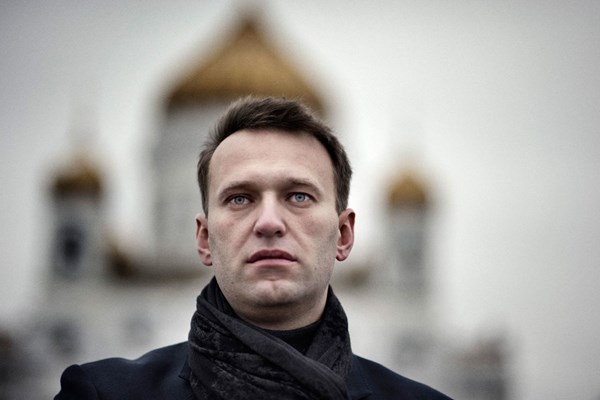Kremlin rejects Germany’s conclusion that Russian opposition leader Alexei Navalny was poisoned
The Kremlin called the German doctors’ conclusion that Russian opposition leader Alexei Navalny was poisoned, hasty and incorrect.
"We do not understand why our German colleagues are in such a hurry, using the word "poisoning". This version was one of the first to be considered by our doctors, but the substance has not yet been established," said Russian Presidential spokesperson Dmitry Peskov.
According to him, "Russian medical analysis matches the one provided by German doctors, but the conclusions are different."
"Our doctors are ready to provide samples of the first tests, to offer German colleagues to exchange biological materials," Putin's representative said.
He also said that the Kremlin "does not see anything new" in the statement of the German Charite hospital where Navalny is treated.
"The fact of the reduced level of cholinesterase was established in the first hours by our doctors in the hospital in Omsk," Peskov said.
He added that Russia could "only partially agree" with the German authorities' claim of possible poisoning, "because it should have been said that there is also the possibility of a second, third, fourth option."
Peskov said there was no reason to investigate whether the Navalny was poisoned. He said doctors must “first find a substance which affected the politician”.
Russian opposition leader Alexey Navalny has been in a coma since August 20, after he became ill on the plane, which was flying from Tomsk to Moscow. The politician's associates believe that he may have been poisoned.
Navalny spent almost two days in a hospital in Omsk, after which he was transported to Berlin. For almost 24 hours, the doctors of the Omsk clinic refused to issue a permit for his transportation, explaining the unstable condition of the patient. Navalny’s supporters believed that it was done on purpose - to hide traces of toxin in the body.
Doctors at the Omsk hospital stated that the diagnosis had been brought to the attention of his relatives. The Russian Ministry of Health stressed that the tests did not detect toxins in Navalny’s body but found alcohol and caffeine. The hospital’s chief medical officer stated that the "basic working diagnosis" was metabolic disorders.
Yesterday, German doctors confirmed that Navalny was poisoned.
"Following his admission, Mr. Navalny underwent extensive examination by a team of Charité physicians. Clinical findings indicate poisoning with a substance from the group of cholinesterase inhibitors. The specific substance involved remains unknown, and a further series of comprehensive testing has been initiated. The effect of the poison – namely, the inhibition of cholinesterase in the body – was confirmed by multiple tests in independent laboratories.," the German hospital said in a statement on its website.
The most known substance of this group of toxins is “Novichok” which was used to poison Sergei and Yulia Skripal.
Former GRU (Russia's Main Intelligence Directorate) colonel Sergei Skripal, who had been convicted in Russia for treason, and his daughter were both found at a restaurant in Salisbury with signs of severe poisoning. The British authorities believe that Russia is behind the crime.
German Chancellor Angela Merkel and German Foreign Minister Heeiko Maas issued a joint statement demanding that Russia fully investigate the poisoning of opposition leader Alexei Navalny.
